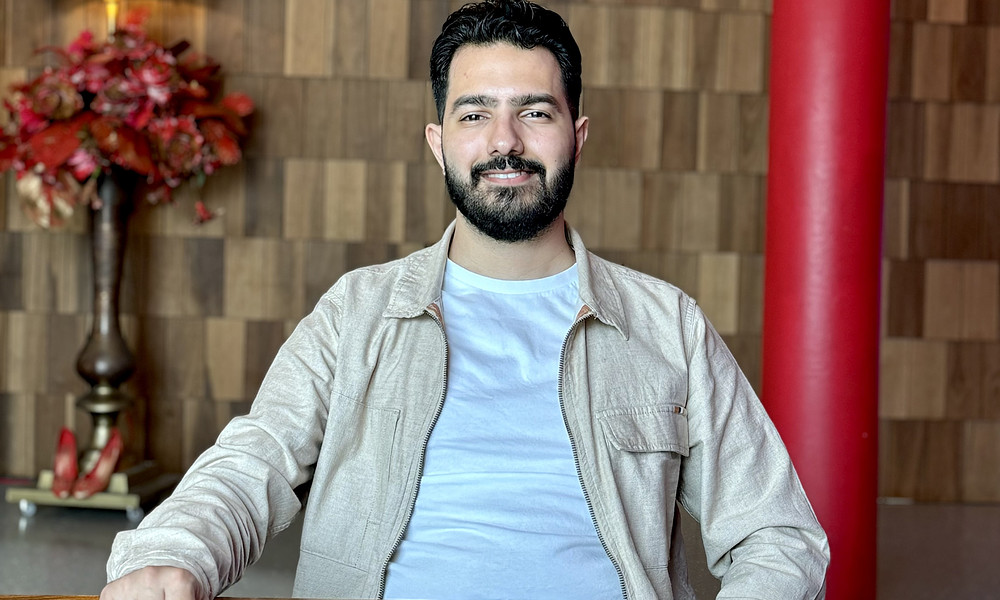'You work with many international students from different countries'
- Student stories

Ali Najem has developed a passion for studying. He fled from Syria to the Netherlands with his family ten years ago and has been working hard ever since. After completing his HAVO education, he started studying Mechatronics at Hanze University of Applied Sciences and then progressed to the master's program in Smart Systems Engineering (SSE). But even after this, he's not done yet.
‘For me, the SSE master's was a logical step after studying Mechatronics. During my bachelor's, I did an internship at MOOD-Sense, where I also met SSE students. This gave me a good insight into the master's program. I knew I wanted to pursue a master's degree after my bachelor's because I plan to continue my studies afterward. I have plans to pursue a PhD as well. But one step at a time—first, I need to finish this master's, and then I'll see what's next.
While doing this master's, I found out that I like doing research, because I felt we were doing it more than during my bachelor. When I really got into researching, I discovered that I actually find this very interesting and I want to continue after this. This is how I really found the motivation to do a PhD after this.
In our bachelor's program, we had to present every project, so we frequently gave presentations. This helped me improve my presentation skills, not only in front of students and teachers but also for companies. It has been beneficial in securing internships and finding a graduation project for this master's program. Before I started at Hanze, I wasn't good at presenting at all, but now I am because we do it so often. This was really good for my professional development.
SSE is a broad program, and you learn a lot in the year and a half that it lasts. This master's gives you the opportunity to research something on your own and come up with solutions. Additionally, you deal with societal issues that need solutions. For example, I worked on a real societal issue from the field. We developed a robot for object detection and identification without a camera. From a privacy perspective, it's not always desirable to use a camera, but how does that work with object identification? We explored, developed, and applied this question as a group of students. We are currently working on getting our idea published in a scientific journal.
What I enjoy most about the master's is developing smart systems. What are the techniques needed to develop a smart system? I also find data filtering and sensor applications very interesting. If someone has done a technical bachelor's, I would definitely recommend this master's program. Not only to work with smart systems and sensors but also for the international and multidisciplinary aspect. You work with many international students from different countries and with different study backgrounds, and you learn a lot from that.’
How satisfied are you with the information on this page?